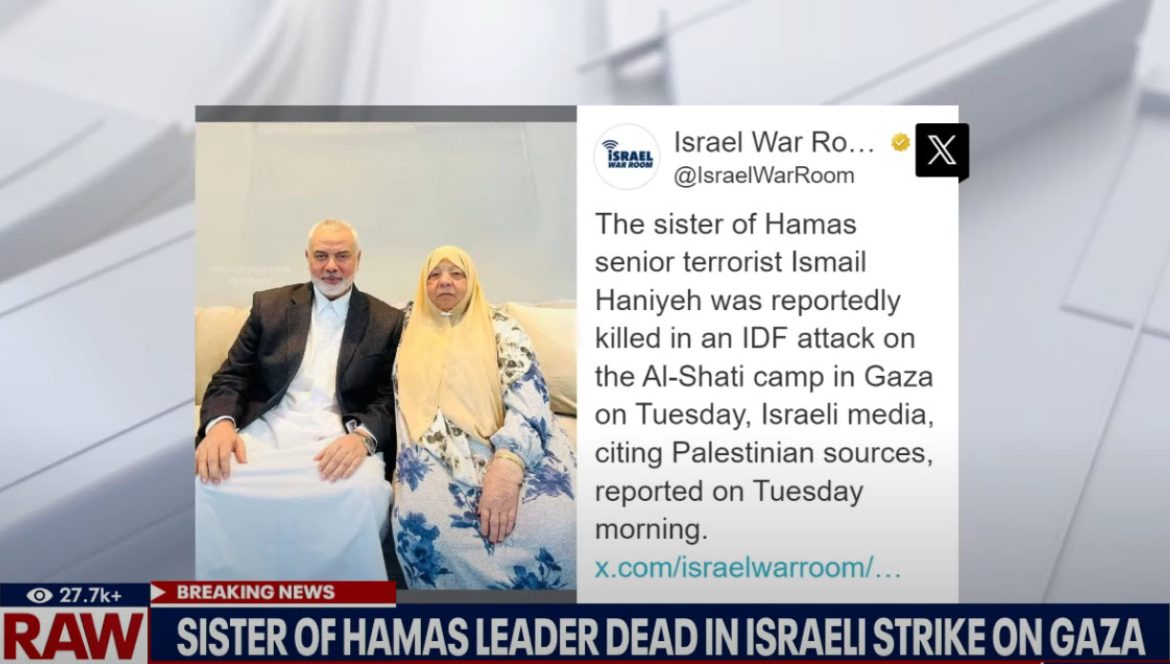The sister of Hamas leader Ismail Haniyeh was killed in an Israeli military strike on Gaza, according to reports from Israeli media corroborated by Palestinian sources. The airstrike, which targeted the Al-Shati refugee camp in the northern Gaza Strip, also claimed the lives of three of Haniyeh’s sons and seven other family members. The attack has further intensified the already volatile situation in the region.
Gaza health officials confirmed the deaths, identifying the sister as Zahr Haniyeh. The Israeli military has been conducting airstrikes in response to rocket fire from Gaza, part of a broader conflict that has seen significant casualties on both sides.
As the violence in Gaza continues, tensions are escalating in northern Israel where the Hezbollah terror group has intensified its attacks. The increased activity by Hezbollah, based in Lebanon, raises the specter of a broader conflict that could draw in multiple regional actors and further destabilize the Middle East.
Professor Simon Mabon, chair of International Relations at Lancaster University, discussed the latest developments on LiveNOW from FOX with Josh Breslow. Mabon emphasized the complex dynamics at play, noting the interplay between local grievances and broader geopolitical tensions. He highlighted the risks of the conflict escalating into a full-scale war involving multiple fronts.
“The situation in Gaza and the increased hostilities from Hezbollah are deeply interconnected,” Mabon explained. “The targeting of Haniyeh’s family is likely to provoke a strong response from Hamas, while Hezbollah’s actions in northern Israel could draw in further regional powers.”
The airstrike on the Haniyeh family home in the Al-Shati refugee camp is part of Israel’s broader military strategy to weaken Hamas’s leadership and infrastructure. However, these actions have also resulted in significant civilian casualties, fueling further anger and resentment among Palestinians and their supporters.
The international community remains deeply concerned about the potential for the conflict to escalate. Efforts are underway to mediate a ceasefire, but the ongoing violence and high-profile casualties such as the Haniyeh family make a resolution increasingly difficult to achieve.
As the situation develops, the world watches closely, fearing the outbreak of a more extensive and devastating conflict. The region’s fragile stability hangs in the balance, with the actions of both state and non-state actors driving the narrative toward an uncertain future.



